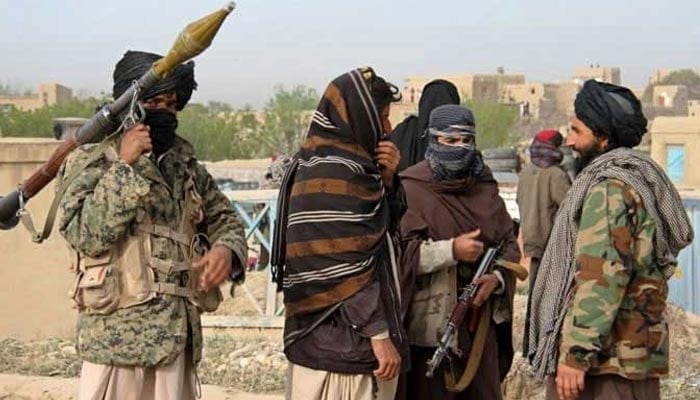
- The KP government prioritizes TTP conversations about the Army’s action: Report.
- The federal government says mainly on military operations.
- PTI Government conversations with TTP from 2018 to 2022: Report.
Pakistan’s efforts to stop the recent increase in terrorism are hindered by internal political divisions, particularly on different approaches between the center and the Khyber Pakhtunkhwa (KP) government, according to a report published by The diplomat – A public publication in the United States focused on politics, security in the Indo-Pacific region.
The divergence in policies, according to the report, has made it difficult for political leadership to develop a unified and comprehensive strategy to address the growing threat of militancy throughout the country.
Pakistan has witnessed an increase in cross -border terrorist incidents since the Taliban rulers returned to Afghanistan in 2021, particularly in the border provinces of KP and Baluchistan.
The report declared that internal political dynamics, including the different strategies pursued by the federal government and the provincial government led by Pakistan Tehreek-E-Insaf (PTI) in KP, have complicated anti-terrorist efforts.
“Pakistan’s anti -terrorist strategy has historically fluctuated among kinetic operations against militant groups and dialogues. For example, during the mandate of Imran Khan as prime minister from 2018 to 2022, the PTI pursued a negotiation policy with the negotiation to administer the threat of TTP. Khan’s approach. Then, this was framed as a pragmatic step Violence in the province, ”he said.
However, according to the report, critics in Pakistan policy formulation circles argued that this was also an attempt by KP -based political groups to appease the Afghan Taliban to gain their cooperation against TTP.
“The policy apparently aimed to foster goodwill with Kabul. However, it failed, since it only ended up emboldening militants who had returned to Pakistan and allowed space for cross -border infiltrations,” the report said.
The report says that Islamabad seems to have learned the harsh appeal lessons. Consequently, the head of the coalition government led by the Pakistan Muslim League (PML-N), as well as state institutions, have firmly ruled out negotiations with the TTP.
However, in KP, where the PTI has power, the provincial government does not seem that the provincial government does not seem fully adopted by the provincial government.



